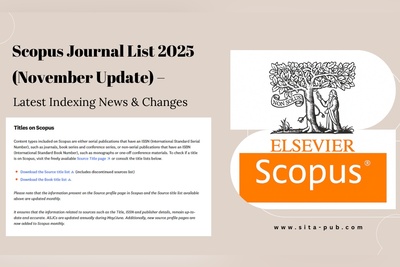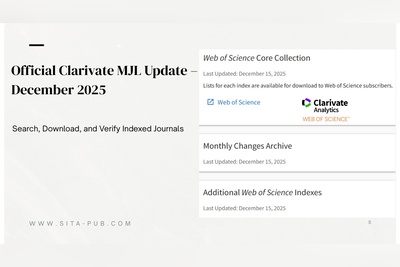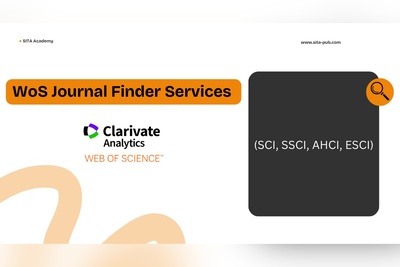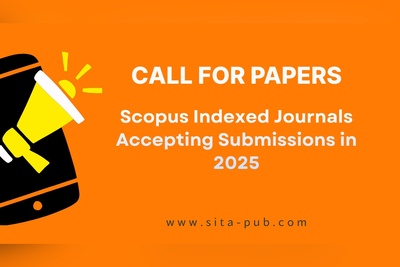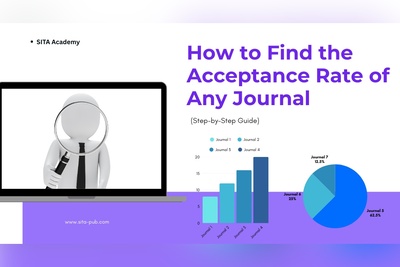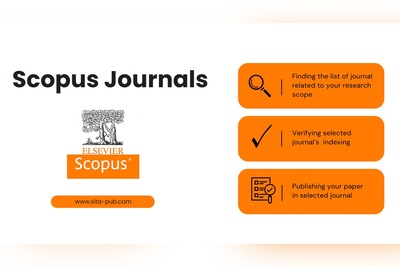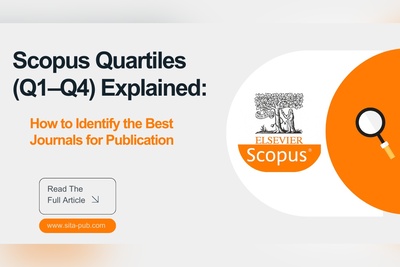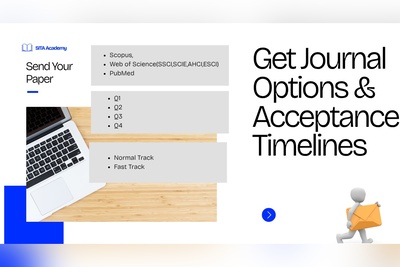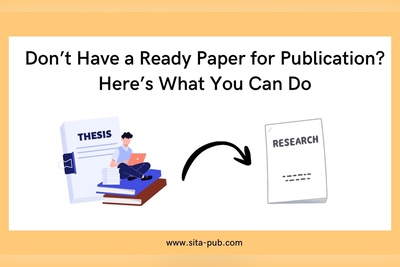Scopus Publication Tips for Non-Native Authors
Struggling to publish in Scopus journals as a non-native English speaker? Discover common challenges and practical tips to boost your publication success.
- Challenges Non-Native Authors Face in Publishing in Scopus Journals
- Tips to Overcome These Challenges
- Master the Journal’s Scope and Guidelines
- Strengthen Your Academic English
- Get Professional Language Editing
- Use Language Improvement Resources—But Carefully
- Practice Concise Abstract Writing
- Avoid Direct Translation from Your Native Language
- Collaborate with Experienced Co-Authors
- Prepare for Peer Review Positively
- Keep Learning Through Rejection
- Seek Publication Support Services

For the non-native English speakers, the publication journey can feel more challenging—not because their research is weaker, but because communicating complex ideas in academic English requires additional effort.
The good news? With the right strategies, non-native authors can not only publish in Scopus journals but also thrive in the international research community.
Challenges Non-Native Authors Face in Publishing in Scopus Journals
Publishing in Scopus is challenging for all researchers, but non-native speakers face specific barriers:

1. Language Barriers
Even if your research is excellent, unclear English can make it hard for editors and reviewers to understand your work. This can lead to misinterpretations or outright rejection.
2. Academic Writing Style Differences
English academic writing tends to favor concise sentences, active voice, and direct argumentation—styles that may differ from other languages.
3. Understanding Journal Guidelines
Journal “Instructions for Authors” are often detailed and technical. Misreading them can result in desk rejections before peer review.
4. Fear of Peer Review Criticism
Some non-native authors worry that reviewers will focus more on their English mistakes than on their research content, leading to hesitation in submitting.
5. Formatting and Technical Details
From references to figures, English-based journals expect strict adherence to formatting rules that may differ from what researchers are used to.
Tips to Overcome These Challenges
Here’s how non-native English authors can overcome these barriers and successfully publish in Scopus journals.

1. Master the Journal’s Scope and Guidelines
Before you write a single word, read the journal’s Aims and Scope carefully. Make sure:
Your research topic fits exactly with what they publish.
You follow their manuscript structure (IMRaD format: Introduction, Methods, Results, and Discussion is common).
You understand their referencing style (APA, MLA, Vancouver, etc.).
💡 Pro Tip: Use recently published articles in the target journal as a style and structure reference.
2. Strengthen Your Academic English
While you don’t need to write like a native speaker, you do need clarity and accuracy.
Avoid long, complex sentences—break them into shorter statements.
Use active voice where possible.
Learn common academic connectors like “however,” “therefore,” “in addition,” and “consequently.”
💡 Pro Tip: Read and analyze articles in your field to see how arguments are developed in academic English.
3. Get Professional Language Editing
Even top researchers use professional editors before submitting to international journals.
Many journals recommend (but don’t require) using English language editing services.
Some universities offer free editing support for their researchers.
You can also use specialized services like SITA Academy, which offers editing tailored for Scopus submissions.
4. Use Language Improvement Resources—But Carefully
There are many resources available to help improve your grammar and writing style, such as grammar checkers, writing guides, and online academic writing courses. However:
Always review any suggested changes to ensure they fit the academic context and meaning of your work.
Avoid relying solely on automated corrections without understanding why changes are made.
💡 Pro Tip: Use these resources to polish your sentences and clarify your ideas, but always double-check to maintain accuracy and the integrity of your research.
5. Practice Concise Abstract Writing
Your abstract is the first (and sometimes only) part reviewers read before deciding to proceed.
Keep it clear, concise, and keyword-rich.
State your problem, method, main results, and conclusion in under 250 words.
💡 Pro Tip: Write your abstract last—after the full paper is ready—so it truly reflects your work.
6. Avoid Direct Translation from Your Native Language
If you write your paper in your native language first and then translate it, you risk awkward phrasing or misinterpretation. Instead:
Write directly in English if possible.
Or, rewrite after translation to make it sound natural.
7. Collaborate with Experienced Co-Authors
Working with researchers who have experience publishing in Scopus journals can:
Improve your manuscript’s clarity.
Help with journal selection.
Provide insight into responding to reviewers.
💡 Pro Tip: International collaborations can also increase your paper’s appeal to global journals.
8. Prepare for Peer Review Positively
Don’t take reviewer comments personally—see them as free expert advice to improve your work.
Address every comment clearly and professionally.
If you disagree with a comment, explain why politely.
9. Keep Learning Through Rejection
Rejection is part of the process—even native speakers face it. Use rejection feedback to strengthen your paper before resubmitting elsewhere.
10. Seek Publication Support Services
If you want to speed up your journey, services like SITA Academy can:
Help select the right Scopus journals for your topic.
Provide professional editing and formatting.
Guide you through revisions and resubmissions.
For non-native English speakers, this kind of targeted, hands-on support can make the difference between years of struggle and quick publication success.
Being a non-native English speaker is not a disadvantage in publishing—it’s simply an additional challenge to manage. Your research’s value is determined by its quality, originality, and relevance, not just your language skills.
By mastering journal requirements, improving your academic English, seeking editing help, and embracing feedback, you can confidently publish in Scopus-indexed journals and make your voice heard in the global research community.
Professional Native English Editing for Scopus Journals — Powered by SITA Academy
Are you aiming to publish in a prestigious Scopus-indexed journal but worried about language barriers? SITA Academy specializes in native English editing tailored specifically for academic manuscripts targeting Scopus journals.
Our experienced editors will refine your grammar, improve clarity, and polish your style to meet the high standards of international peer review. Whether you’re a non-native English speaker or simply want to enhance your paper’s quality, we provide the expert support you need to submit with confidence.
Contact SITA Academy today and let us help you prepare a flawless manuscript that stands out. Submit your paper now for professional editing and boost your chances of publication success.
Verified Contact Channels
If you have any questions, inquiries, or would like to learn more about our services, please don't hesitate to reach out to us. Our dedicated team is ready to assist you.





